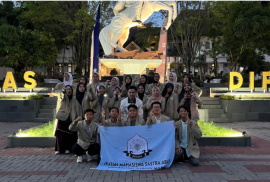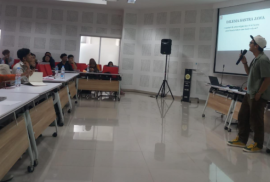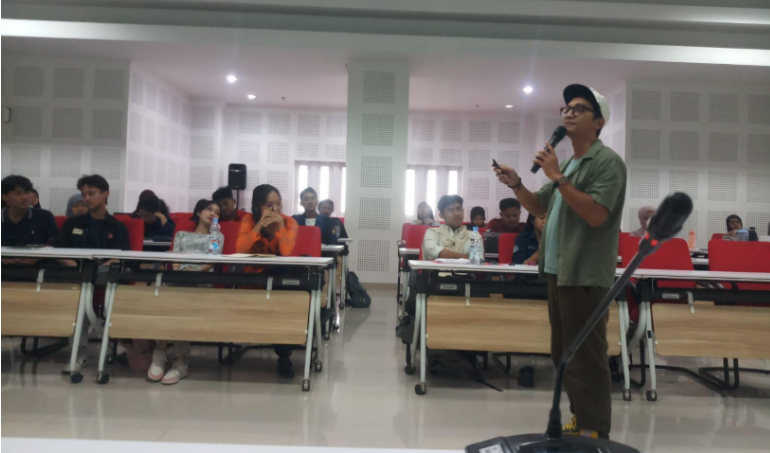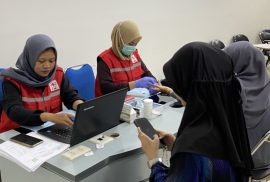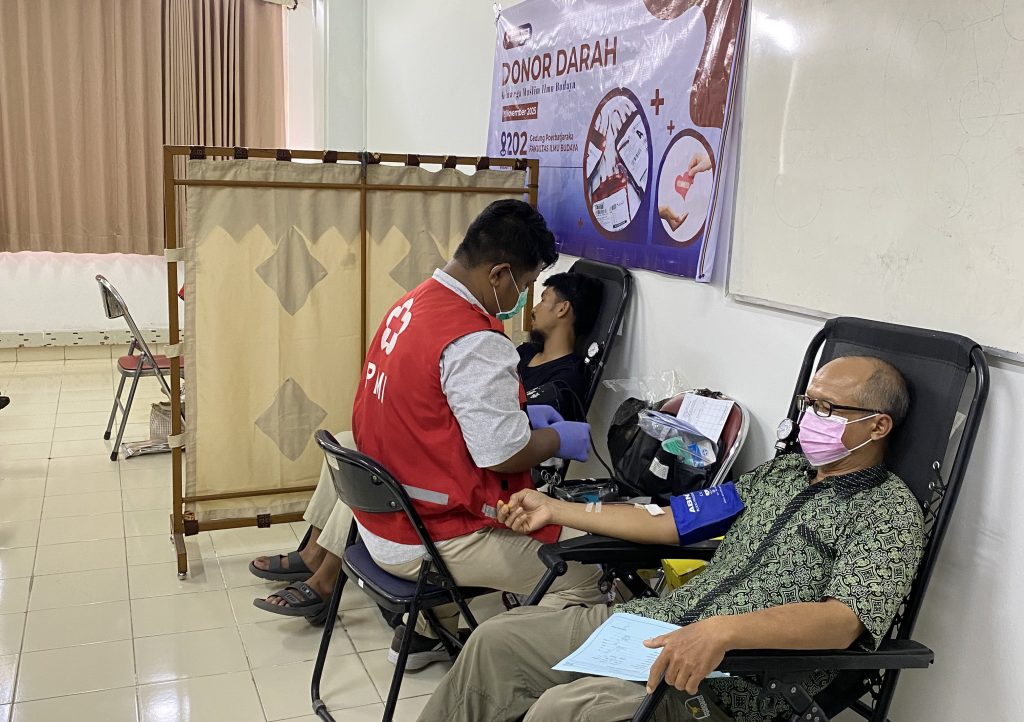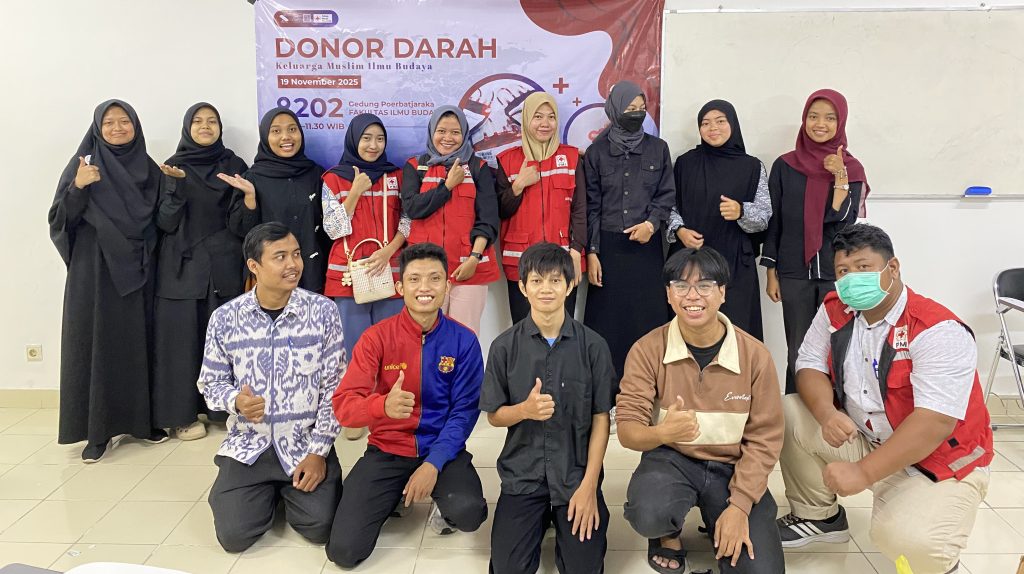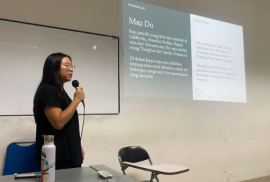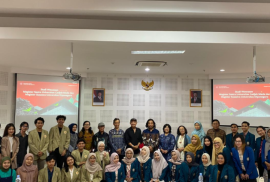Semarang, 25 October 2025 — Twenty-eight students from the Arabic Study Program, Faculty of Cultural Sciences, Universitas Gadjah Mada participated in the UNDIP Muslim Festival held on Saturday, 25 October 2025 at Diponegoro University in Semarang, Central Java. The delegation competed across three categories: Cerdas Cermat Islam (CCI), Musabaqah Hifdzil Qur’an (MHQ), and Musabaqah Tilawatil Qur’an (MTQ). The group departed Yogyakarta at 04:00 WIB and arrived at Diponegoro University at 08:00 WIB. Upon arrival, delegates shared a breakfast together before the festival program began.
After attending the grand opening ceremony, participants proceeded to their respective competition venues. In the CCI category, the Arabic Study Program team advanced to the semifinal round, a notable achievement that demonstrated the students’ knowledge and preparedness. The festival ran smoothly and in high spirits, reflecting both the discipline and enthusiasm of the UGM delegation. UGM’s participation in UNDIP Muslim Festival 2025 aligns with the United Nations Sustainable Development Goals, particularly SDG 4 (Quality Education) and SDG 16 (Peace, Justice and Strong Institutions). The Arabic Study Program hopes the competition experience will inspire continued academic achievement and community engagement among its students as they prepare for future national and regional events.
Author: Azka Dihya Khaliffa

